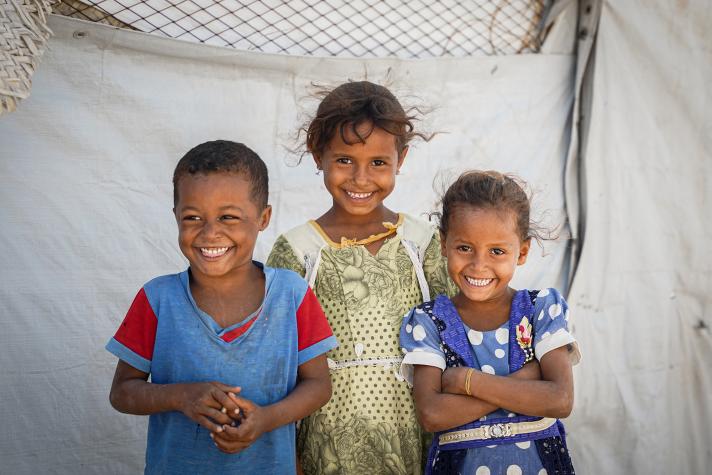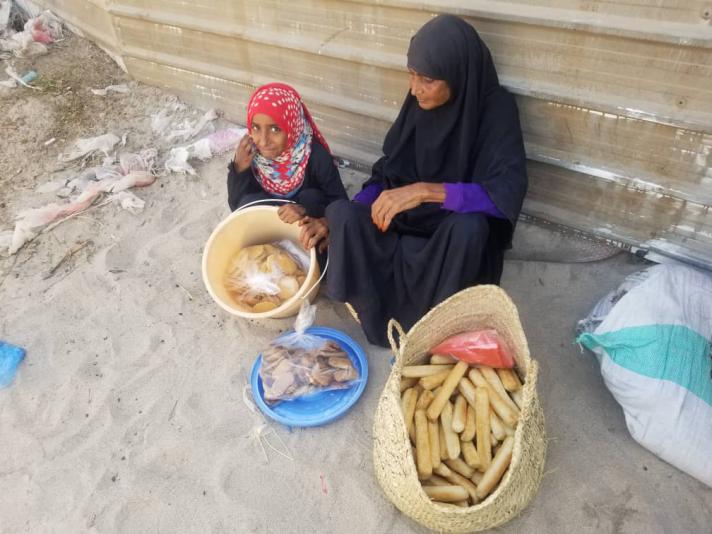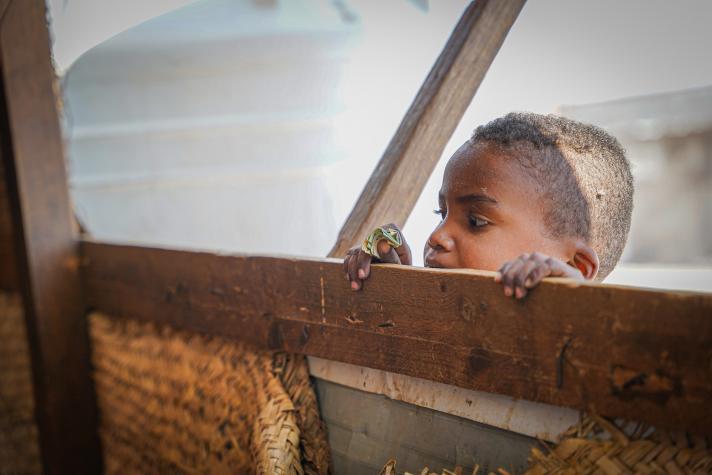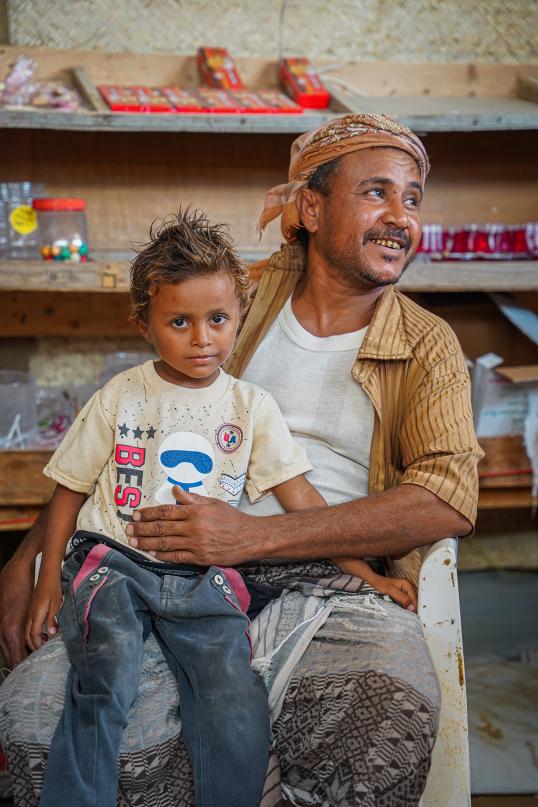Like millions of Yemenis, Aisha was driven from her home by a missile attack. She will never forget the chaos and panic of that day when she had to take her grandchildren to safety.
Emergency aid and cash assistance funded by the EU were instrumental in helping her piece her life back together.
“I was terrified. I was not worried about myself. I was afraid for my grandchildren. I saw the terror on their faces as screams filled the neighbourhood coming from every house in the city.”
55-year-old Aisha recounts how people fled their homes in panic, not knowing where to go when her home in the Al-Manthar district in Hodeidah was targeted with a ballistic missile more than a year ago.
“I gathered my strength and searched for any means of transportation that would get us out of that hell,” she explained.
When she finally managed to find a pick-up truck, the driver demanded a lot of money because of the many passengers. Aisha had no choice but to agree, even if this meant spending most of the little money she had managed to save before fleeing the conflict.
Aisha had heard from her relatives that displaced people from Al-Manthar went to displacement sites in Al-Khawkha, also in Hodeidah governorate. The sites are managed by the Danish Refugee Council (DRC), an NGO that helps conflict-affected people with EU support.
So, this is where she and her family were headed.
The journey was long, with many checkpoints along the road. Another family hosted them when they first arrived at the Al-Jisha site for displaced people.
On the second day, all the newly displaced households were registered and given a kit by DRC’s emergency team, including ready-to-eat food and hygiene items.
“I was very grateful and happy that we were registered so quickly and that we were given a tent after a short time, as well as mattresses, blankets and other things,” Aisha said.
Cash assistance for multiple purposes
After settling in their new tent, Aisha received 117,000 thousand riyals (the equivalent of €165). This cash assistance helped her buy food for the family and other basic items for the month.
About a month later, Aisha received a second round of multi-purpose cash assistance. She decided to use part of it to start a small project to earn an income. She began selling bread and cake in the site, moving from one shelter block to another.
She keeps her produce in covered containers to protect it from dust and contamination. She buys the bread and cake from a bakery and sells them in two shifts, from 7 to 11 in the morning and from 3 in the afternoon until the evening.
“People prefer cash over food assistance,” says Anwar Basel, DRC’s cash distribution officer. “Our cash assistance has significantly raised the standard of living of the displaced families. They buy vegetables, fruit and other things. It also drives circulation of the local currency.”
The EU is committed to delivering 35% of all its humanitarian aid globally as cash. In Yemen, the EU has been supporting the Cash Consortium of Yemen, a grouping of aid agencies led by DRC. They are convinced cash assistance is one of the most effective ways of providing aid and good for the local economy.
Hasan Maqbol Afif, a shop owner in Attera camp, was himself displaced in 2020. After receiving cash assistance, he was able to open a small shop on-site in Tuban Lahj.
“I think it is better for aid to be given in cash rather than supplies,” Hasan said. “It has helped the displaced pay off the debts they’d accumulated. They used to buy everything from me on credit because they didn’t have enough money,” he explained.
Research shows that cash assistance gives people more power to make choices and plan their recovery from a crisis. After several rounds of cash assistance, Aisha was able to meet her basic needs and has also achieved a measure of economic stability, allowing her family to live with more dignity.
Story by Hind Al Baadani (Danish Refugee Council) and Anouk Delafortrie (EU humanitarian aid)
Publication date: 25/03/2022




